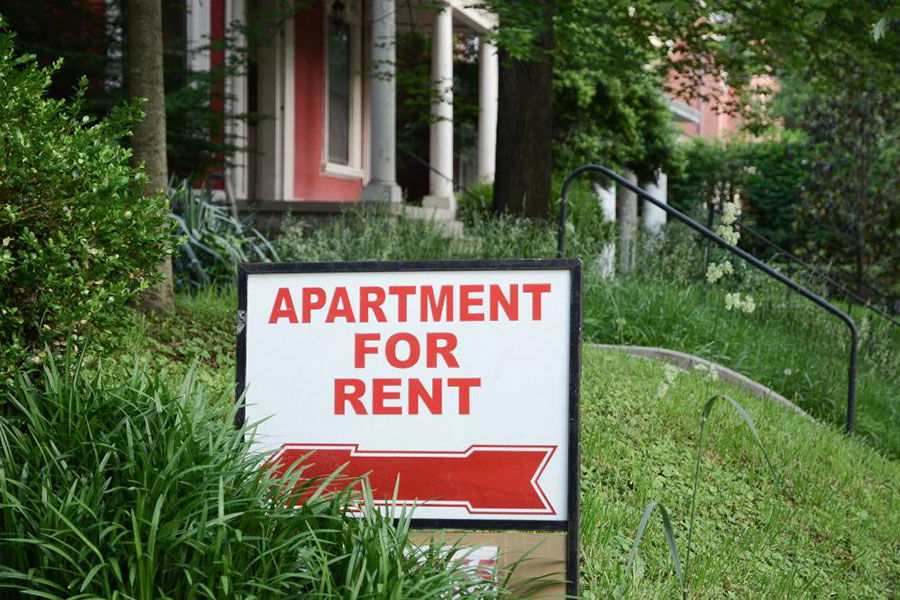Real estate investing is one of the most proven ways to build long-term wealth. Whether you’re looking to earn passive income, grow your net worth, or eventually quit your 9-to-5, owning property can help you get there. But buying your first investment property takes more than just ambition—it takes strategy.

This beginner’s guide will walk you through the key steps, from choosing the right type of investment to analyzing deals, managing risks, and growing your portfolio over time. You’ll learn what actually works, what to avoid, and how to build a solid foundation without getting overwhelmed.
If you’re ready to start investing in real estate but don’t know where to begin, this is the place to start.
Key Takeaways
- Real estate can generate steady income and long-term growth, but it takes smart planning and a solid grasp of the market.
- Start with a clear budget, focus on learning your local market, and begin with smaller deals to build confidence and experience.
- Work with trusted professionals—agents, attorneys, and accountants—to avoid costly mistakes and manage your investments more effectively.
Why Invest in Real Estate?
Real estate has helped millions of people build wealth, generate passive income, and hedge against inflation. Unlike more volatile assets, property is a tangible investment with long-term potential. It’s not risk-free, but the right strategy can offer both steady income and strong returns.
Here are some of the main benefits that make real estate worth considering:
Steady Income From Rent
Rental properties can generate consistent monthly income. After covering your expenses, the remaining cash flow can go toward savings, reinvestment, or early retirement. This steady stream of income is one reason many investors use real estate to create financial independence.
Potential for Long-Term Appreciation
Home values tend to rise over time. While markets fluctuate in the short term, real estate historically appreciates—especially in growing areas. This gives you the chance to build equity and eventually sell for a profit.
Tax Advantages That Save You Money
Real estate offers tax breaks that can lower your overall bill. You may be able to deduct mortgage interest, property taxes, depreciation, and other expenses. A tax professional can help you maximize these benefits based on your situation.
Diversification Outside the Stock Market
Adding real estate to your portfolio gives you a hard asset that doesn’t move with the stock market. That kind of diversification can reduce risk and make your overall investments more stable.
Leverage to Maximize Returns
With real estate, you can use other people’s money—usually a mortgage—to buy a valuable asset. This means your returns are based on the full property value, not just your down payment. Just be careful not to overextend yourself, especially early on.
Types of Real Estate Investments for Beginners
Real estate isn’t just about buying a house and renting it out. There are several ways to invest, each with its own risk level, time commitment, and income potential. Here’s a quick breakdown of the most common options for beginners:
Residential Rental Properties
These include single-family homes, duplexes, triplexes, and small apartment buildings. Many new investors start here because housing demand is steady and the learning curve is manageable. You’ll earn income from tenants, but you’ll also need to handle maintenance, vacancies, and repairs—or hire a property manager.
Commercial Properties
Commercial real estate includes office buildings, coworking spaces, and strip malls. Leases tend to be longer and often generate higher rental income, but the upfront costs are higher, and the properties can sit vacant longer if a tenant leaves. This path usually requires more experience or a strong team.
Industrial Real Estate
These properties include warehouses, distribution centers, and manufacturing facilities. They’re often leased to businesses for long terms and can offer stable returns. However, zoning laws, location, and property-specific needs make this sector more complex for first-time investors.
Retail Properties
Retail spaces include standalone stores, strip malls, and shopping centers. Some leases may include a percentage of the tenant’s revenue, adding income upside. But retail is heavily influenced by local foot traffic and shifts in consumer behavior, especially with the rise of e-commerce.
Mixed-Use Properties
These developments combine residential, retail, and office space in a single location. While this is typically the domain of larger developers, it’s good to be aware of them—especially if you’re considering investing in commercial real estate. You’ll be competing with these flexible spaces for tenants.
House Hacking
House hacking is a strategy that involves living in part of a property while renting out the rest—like buying a duplex, living in one unit, and renting the other. It’s a smart, low-risk way to start investing while keeping your housing costs low.
Real Estate Investment Trusts (REITs)
REITs are companies that own income-generating properties. You can invest in them through the stock market just like you would with mutual funds. It’s a hands-off option that still gives you exposure to real estate, often with dividend income. Just be aware that REITs can fluctuate like stocks.
7 Beginner-Friendly Ways to Start Investing
Once you understand the different types of real estate, the next step is choosing how you want to start investing in real estate. These beginner-friendly strategies offer a range of time commitments, capital requirements, and risk levels—so you can find one that fits your situation.
1. Buy and Hold
This is the classic approach: buy a rental property, keep it long term, and earn monthly income while the property appreciates. It’s ideal for building steady cash flow and long-term wealth.
2. House Hacking
Live in one unit of a multi-family property and rent out the others. You can also rent out spare bedrooms in a single-family home. It’s a low-cost way to get started while covering your own housing expenses.
3. Flipping
Buy a property below market value, renovate it, and sell for a profit. It can be lucrative, but it takes strong budgeting skills, knowledge of the local market, and a reliable contractor network.
4. Wholesaling
Find properties that are undervalued, get them under contract, and sell the contract to another investor for a fee. You don’t need much capital, but you do need hustle, negotiation skills, and a list of ready buyers.
5. REITs
If you want to invest passively, you can buy shares of a Real Estate Investment Trust (REIT). You get exposure to real estate without owning or managing property—and many REITs pay regular dividends.
6. Online Platforms
Crowdfunding sites let you invest in real estate projects for as little as $10 or $100. They pool money from many investors and usually pay out monthly or quarterly returns. Just read the fine print—returns aren’t guaranteed.
7. Real Estate Syndications
Syndications are group investments in larger properties like apartment complexes or commercial buildings. One investor (the sponsor) manages the deal, while others contribute capital. It’s passive, but usually requires a higher upfront investment and trust in the sponsor’s track record.
How to Buy Your First Investment Property in 6 Steps
Buying your first investment property doesn’t have to be overwhelming. Follow these six practical steps to get started with confidence and avoid costly mistakes.
1. Check Your Finances
Make sure you have enough saved for a down payment, closing costs, and unexpected repairs. Know your credit score, monthly budget, and debt-to-income ratio—these will impact your financing options.
2. Learn the Local Market
Study property values, rental rates, and neighborhood trends in your target area. Look for high-demand locations with low vacancy rates and strong job growth. Stick to one market at a time so you can learn how it works before expanding elsewhere.
3. Build Your Team
Start connecting with key professionals: a real estate agent who works with investors, a lender or mortgage broker, a real estate attorney, and a CPA who understands rental property taxes. These people will help you avoid major pitfalls.
4. Explore Financing Options
Compare loan types—conventional, FHA, or investment loans. Also look into private lenders, hard money loans, or even seller financing. Choose the option that gives you the best terms without overextending your budget.
5. Run the Numbers
Break down the property’s income potential versus expenses. Factor in the mortgage, taxes, insurance, maintenance, and vacancy. If the monthly income is higher than the costs, you’ve got positive cash flow.
6. Make the Offer and Close
Once you’ve found a solid deal, work with your agent to make an offer. Negotiate repairs or price reductions if needed. During closing, review every document and cost carefully. Don’t rush—this is where small mistakes can become big ones.
Common Real Estate Investing Risks and How to Avoid Them
Even solid investments come with risks. The key is to know what could go wrong—and have a plan to protect yourself. Here are some of the biggest risks for first-time real estate investors and how to stay ahead of them.
Vacancy Risk
If your property sits empty, you’re still on the hook for the mortgage, taxes, and maintenance.
How to avoid it: Choose high-demand areas, price your rent competitively, and screen tenants carefully. A good property manager can help reduce turnover and keep your units occupied.
Unexpected Repairs
A broken furnace or roof leak can wipe out months of profit.
How to avoid it: Always set aside money for maintenance—aim for 1–2% of the property value per year. Get a thorough inspection before you buy, and do regular checkups to catch small issues early.
Market Declines
If property values drop, your equity takes a hit—and you may not be able to sell without a loss.
How to avoid it: Focus on buying for cash flow, not just appreciation. If your rental still earns income, a market dip won’t derail your investment.
Legal or Regulatory Changes
Zoning shifts, tax changes, or new landlord-tenant laws can affect your income.
How to avoid it: Stay informed on local laws and work with a real estate attorney or CPA who understands your area. Always factor in regulatory risk when choosing a market.
Thinking Long-Term: How to Build Wealth With Real Estate
Real estate investing isn’t about chasing a quick win—it’s about building wealth that lasts. The best investors take a long-term view and grow their portfolios one smart move at a time.
Focus on one strategy that fits your lifestyle. If you want consistent income, buy-and-hold rentals may be the way to go. If you prefer short-term returns and more hands-on work, house flipping might suit you better.
Reinvest profits when you can. Whether it’s rental income or a flip payout, putting your gains into the next deal is how small portfolios grow into something big.
As you scale, don’t rush to buy more properties just for the sake of growth. Quality beats quantity. Make sure every deal improves your overall cash flow, not just your property count.
Smart Tips for First-Time Investors
Getting into real estate for the first time can feel overwhelming. These tips will help you stay focused, avoid beginner mistakes, and make smarter decisions from day one.
- Start small: Stick to one property at a time. Your first deal should be manageable and cash-flow positive—not a fixer-upper that eats your budget.
- Invest where you understand the market: Don’t chase hot cities just because they’re trending. Choose neighborhoods you know, or spend time learning the area before buying.
- Run the numbers yourself: Don’t rely on a seller’s projections. Double-check rents, expenses, and property taxes. If the deal only works under perfect conditions, walk away.
- Keep your emotions out of it: You’re not buying your dream home—this is a business. Focus on the numbers and treat every decision like a financial one.
- Build relationships early: Talk to local property managers, contractors, and investor-friendly agents before you buy. The right people can make or break your success.
8 Real Estate Terms Every Beginner Should Know
Here are the key terms every new investor should know before buying a property. Learn these now—they’ll come up in almost every deal you look at.
- Appreciation: The increase in a property’s value over time. This can come from market growth, inflation, or property improvements.
- Cap rate: Short for capitalization rate. It shows the annual return on a property based on its income. A higher cap rate usually means more risk.
- Cash flow: The money left over after you collect rent and pay all expenses. Positive cash flow means your property is earning, not draining.
- Equity: The difference between the property’s value and what you still owe on the loan. Equity builds as you pay down the mortgage or if the property appreciates.
- Leverage: Using borrowed money (usually a mortgage) to buy real estate. It lets you control a large asset with a smaller upfront investment.
- Net operating income (NOI): Total income from the property minus operating costs (excluding the mortgage). Used to assess a property’s profitability.
- REO (real estate owned): A property that didn’t sell at foreclosure and is now owned by a bank. Often sold at a discount, but may need repairs.
- ROI (return on investment): A percentage that shows how much profit you’ve made compared to what you invested. Higher ROI means a better-performing deal.
Final Thoughts
You don’t need to be rich, experienced, or perfectly timed to succeed in real estate. You just need to get started with the right plan and the right mindset.
Start small, stay focused on cash flow, and build smart habits early. Your first property isn’t the finish line—it’s the foundation for something bigger.




